May 23, 2025 | 06:54 GMT +7
May 23, 2025 | 06:54 GMT +7
Hotline: 0913.378.918
May 23, 2025 | 06:54 GMT +7
Hotline: 0913.378.918
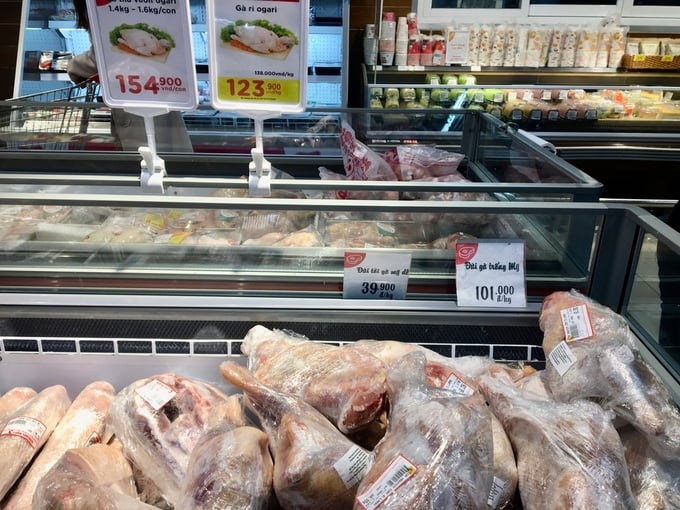
According to the Department of Animal Health, imports of poultry meat into Vietnam must follow a six-step process. Photo: PH.
According to the Department of Animal Health under the Ministry of Agriculture and Rural Development, the import and quarantine of poultry meat products into Vietnam is currently subject to the Law on Animal Health, the Law on Food Safety and other relevant documents.
Additionally, Vietnam is a member of the World Trade Organization with close connection to the global economy. As a result, the international trade of animals, animal products including poultry meat must comply with the Agreement on the Application of Sanitary and Phytosanitary Measures (SPS Agreement/WTO).
Namely, these six steps must be followed during the evaluation process for imports of poultry meat products:
Step 1: As a prerequisite for import risk analysis, competent Animal Health authorities in the exporting country must, upon request, provide Vietnam's Department of Animal Health with relevant information regarding disease status, regulations on disease surveillance, management and supervision of sanitary conditions in the production chain, etc.
Step 2: The Department of Animal Health will conduct analysis and review based on the information provided by the exporting country in combination with data from other information sources, such as the World Organization for Animal Health (OIE).
If the results comply with the requirements for disease and food safety in Vietnam as well as international practices and the SPS/WTO Agreement, the Department of Animal Health will assign a field inspection team to the exporting country.
Step 3: The Department of Animal Health will inform the exporting country of the import requirements and the format of the Certificate of Quarantine based on the results from the import risk analysis, field inspection, the OIE's guidelines and various agreements related to the quarantine of animals and animal products in which Vietnam participates.
Step 4: According to Decree No. 15/2018/ND-CP dated February 2, 2018 which governs the Law on Food Safety, the competent authority of the exporting country must register for a poultry meat producing and trading facility in Vietnam.
Step 5: The Department of Animal Health shall conduct appraisal, examination and evaluation of each establishment's export registration documents in combination with field inspection where necessary. Subsequently, only qualified establishments will be approved for import into Vietnam.
Step 6: Consignments of poultry meat products must be quarantined in accordance with Vietnam's regulations during the importation procedure.
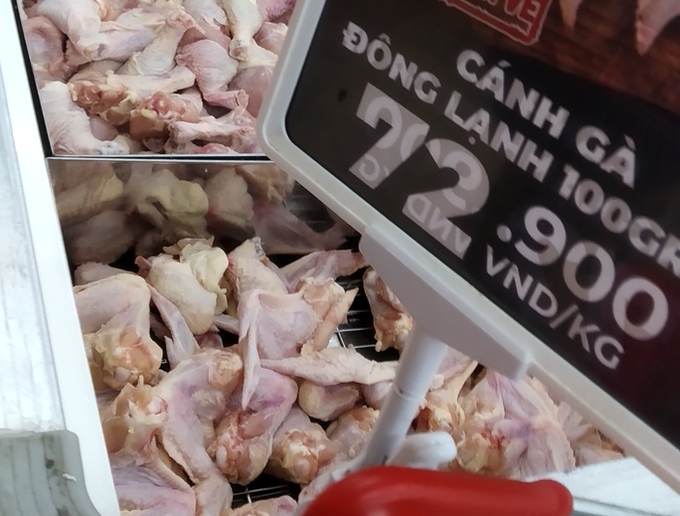
The quarantine and control of poultry meat products into Vietnam is under strict supervision in accordance with international practices. Meat products are inspected and supervised by competent authorities in exporting countries and they are strictly controlled during the importation process. Photo: PH.
Based on the importers' registration and quarantine declaration, Animal Health agencies will inspect newly arrived shipment at border gates for their quarantine records, manifests as well as collect samples to test for various quarantine criteria. Furthermore, consignments of frozen poultry products must be kept at the import border gate until inspection results are available.
New consignments will be granted an import quarantine certificate once they fulfill these criteria.
In addition, the Department of Animal Health organizes an annual sampling program to test for antibiotic residues in imported poultry meat products.
Consequently, the quarantine and control of poultry meat products into Vietnam is under strict supervision in accordance with international practices. Meat products are inspected and supervised by competent authorities in exporting countries and they are strictly controlled during the importation process.
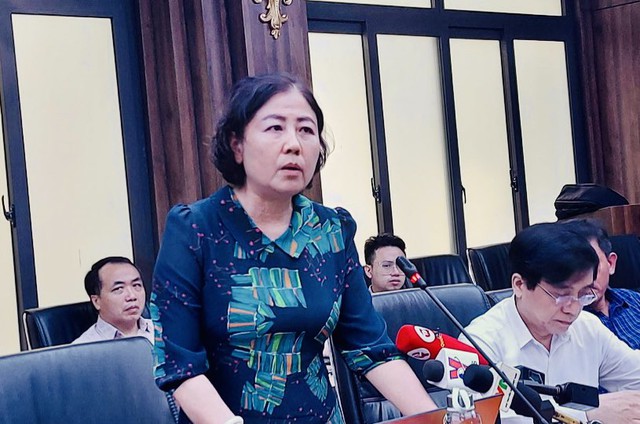
Ms. Nguyen Thu Thuy, Deputy Director of the Department of Animal Health. Photo: PH.
Ms. Nguyen Thu Thuy, Deputy Director of the Department of Animal Health emphasized that each imported animal product must go through a rigorous evaluation process for at least 4 to 5 years before being considered for import into Vietnam.
The Department of Animal Health must verify the disease records, and supervise the food safety procedure in the exporting country.
Deputy Director Nguyen Thu Thuy also noted that Vietnam, as a WTO member, must prohibit discriminatory policies.
Accordingly, standards and regulations for food imports must also be applied to domestic products.
"Vietnamese poultry products, especially old egg-laying hens, are still sold as food for domestic consumers. As a result, we cannot bar similar low-grade products from entering Vietnam", explained Ms. Nguyen Thu Thuy.
According to Vietnam's current regulations, the rate of inspection for imported consignments is 5%, meaning that only 5 out of 100 shipments are subject to routine inspection.
Multiple examinations of imported terrestrial animal products, including chicken, pig, and beef, carried out during the last two years has revealed no instances of highly concentrated chemical residues on food.
However, the Minister of Agriculture and Rural Development has directed the Department of Animal Health to review food standards for countries that are exporting meat to Vietnam, with a focus on Korea and Brazil, to identify and overcome challenges.
According to the Vietnam Poultry Association (VIPA), the illegal transportation and trade of poultry, poultry products in Vietnam has worsened in areas that share borders with other countries, especially those in the central and southern provinces.
Subsequently, VIPA proposed the Government to promptly issue a document banning the import of poultry meat products from countries that use ractopamine and cysteamine growth stimulants.
On the other hand, VIPA suggested the Ministry of Agriculture and Rural Development to promptly implement non-tariff measures to protect production as well as the health of Vietnamese consumers.
Translated by Nguyen Hai Long
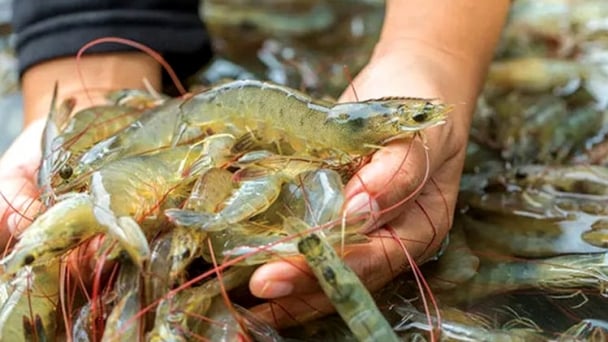
(VAN) A study assessing the carbon footprint of whiteleg shrimp farming in China shows the potential for carbon emission reduction through the use of renewable energy.
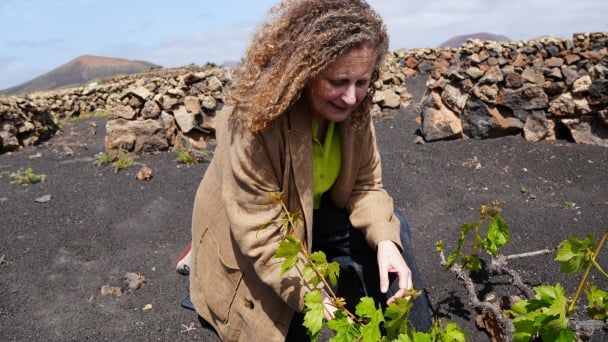
(VAN) Brazil, China, Mexico and Spain receive new designations of Globally Important Agricultural Heritage Systems from FAO.
![Reducing emissions from rice fields: [3] New values generated from carbon credit](https://t.ex-cdn.com/nongnghiepmoitruong.vn/608w/files/content/2025/05/19/dsc09613-144700_71-150957.jpg)
(VAN) In addition to helping safeguard the environment, the low-emission rice cultivation model also generates new opportunities for farmers by leveraging the carbon credit market.
![Ho Chi Minh city adapts to climate change: [1] Vulnerable in the whirlwind of development](https://t.ex-cdn.com/nongnghiepmoitruong.vn/608w/files/duyenht92/2025/05/19/3131-ngap-nongnghiep-163121.jpg)
(VAN) As the country's economic engine with a rapid urbanization rate, Ho Chi Minh city is facing increasingly serious consequences of climate change.
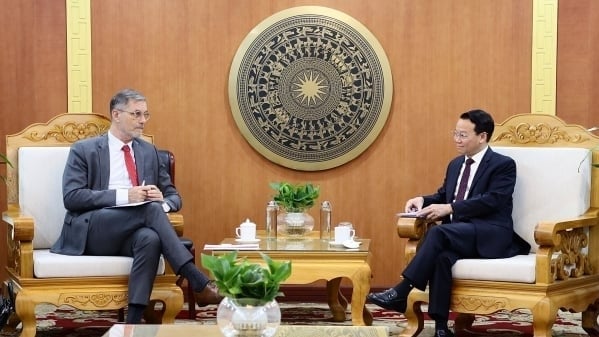
(VAN) On May 21, Minister of Agriculture and Environment Do Duc Duy worked with Mr. Olivier Brochet, Ambassador Extraordinary and Plenipotentiary of the French Republic to Vietnam.
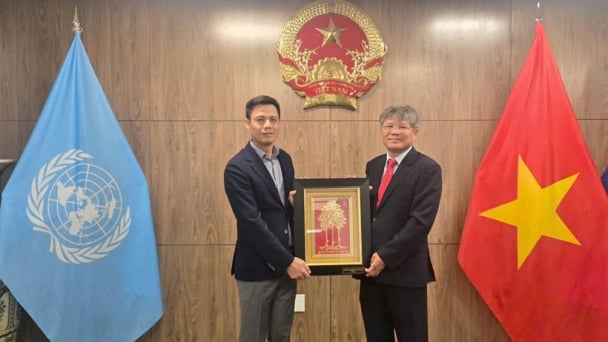
(VAN) VRG recently conducted a visit and working trip to the United States to demonstrate its efforts in redefining the role of rubber enterprises in the global value chain.

(VAN) In 2024, over 295 million people across 53 countries and territories faced acute hunger—an increase of almost 14 million people compared to 2023, while the number of people facing catastrophic levels of hunger reached a record high.